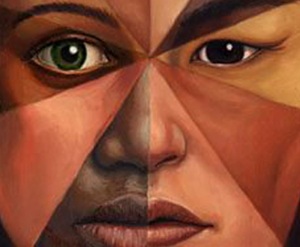 I’ve been in the practice of storytelling through art since elementary school. I didn’t begin to tell my own story, however, until graduate school, where I wrote about the adventures of a dark-skinned mixed boy and a Russian-American girl in rural Kansas. After two years of study, I managed to complete my thesis, but was well short of a finished first draft.
I’ve been in the practice of storytelling through art since elementary school. I didn’t begin to tell my own story, however, until graduate school, where I wrote about the adventures of a dark-skinned mixed boy and a Russian-American girl in rural Kansas. After two years of study, I managed to complete my thesis, but was well short of a finished first draft.
After spending several more years writing a mixture of what could be described as The Little Prince meets Pedro Paramo, I realized the main character’s search for identity and purpose in a world that regarded him as anomalous because of his skin color and unorthodox beliefs were, in essence, my own.
Knowing my heritage, I managed to confounded the color line and mass-mediated stereotypes as a child. “You don’t sound Black” and “You are not the usual Black” are comments I’ve heard most often, the runners up being: “I can tell you’re mixed because your hair is different” or “What country are you really from?”
I’ve developed a series of responses over the years—some of which mention I’m of African, Cherokee, and Scottish ancestry—but, no matter how I respond, I always wonder why people from seemingly all backgrounds police Black identity so zealously, especially in regard to dark-skinned people of African descent.
An ex-girlfriend was of a similar mix type, but her appearance was notably different than mine. She had pale skin, blue eyes, and straightened brown hair with natural blonde highlights. I identified as mixed because of my upbringing and knowledge of my ancestry; she identified as Black because of her upbringing, adherence to the one-drop rule, and what I assume to be disinterest in her Native and Anglo ancestries. While our inevitable split was not due solely to identity politics, the policing of Blackness played a large part in our relationship’s demise.
Until recently, I was in the occasional habit of defending my ancestries with genealogical records, DNA test results, and family photographs, but I stopped all together because the act of proving serves to trivialize my experience and existence. I also stopped because identity police are annoying. Now I tell them “I am who my ancestors are” and let their minds silently explode.
The novel I mentioned earlier has actually become a memoir in verse even though the characters and happenings are fictional. If the concept of a poetic fictional memoir seems contradictory, blame artistic license, cultural inheritance, and the subversive nature of poetry. I was brought up to know storytelling is more about getting to the underlying truth than simply relating details. Given that, I’ve come to realize the concept of being both dark skinned and mixed is difficult to convey accurately without writing about in academic detail the usual suspects of colonialism, colorism, racism, and general human cruelty. Writing my truth in essence seems more natural and meaningful beyond mere details of record, and has become an effective way to transcend identity politics.

My Mother’s Haplogroup – Region: Southeastern Asia
